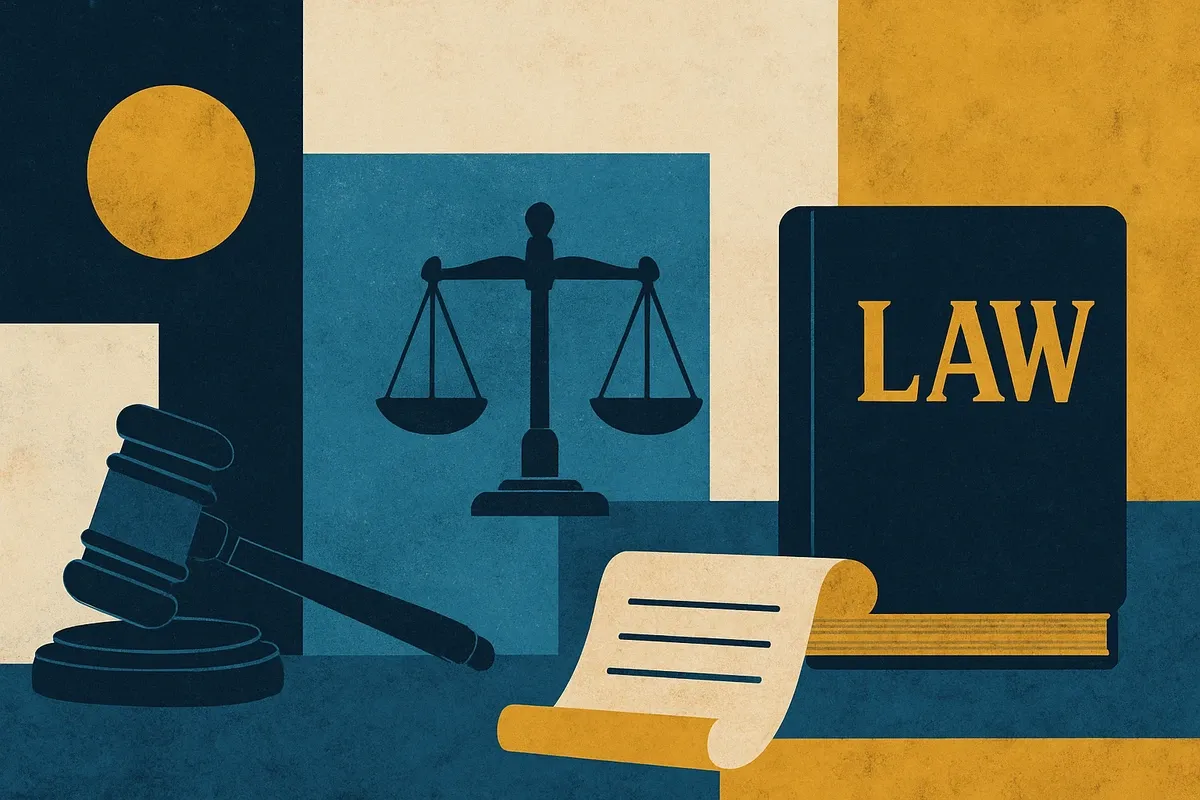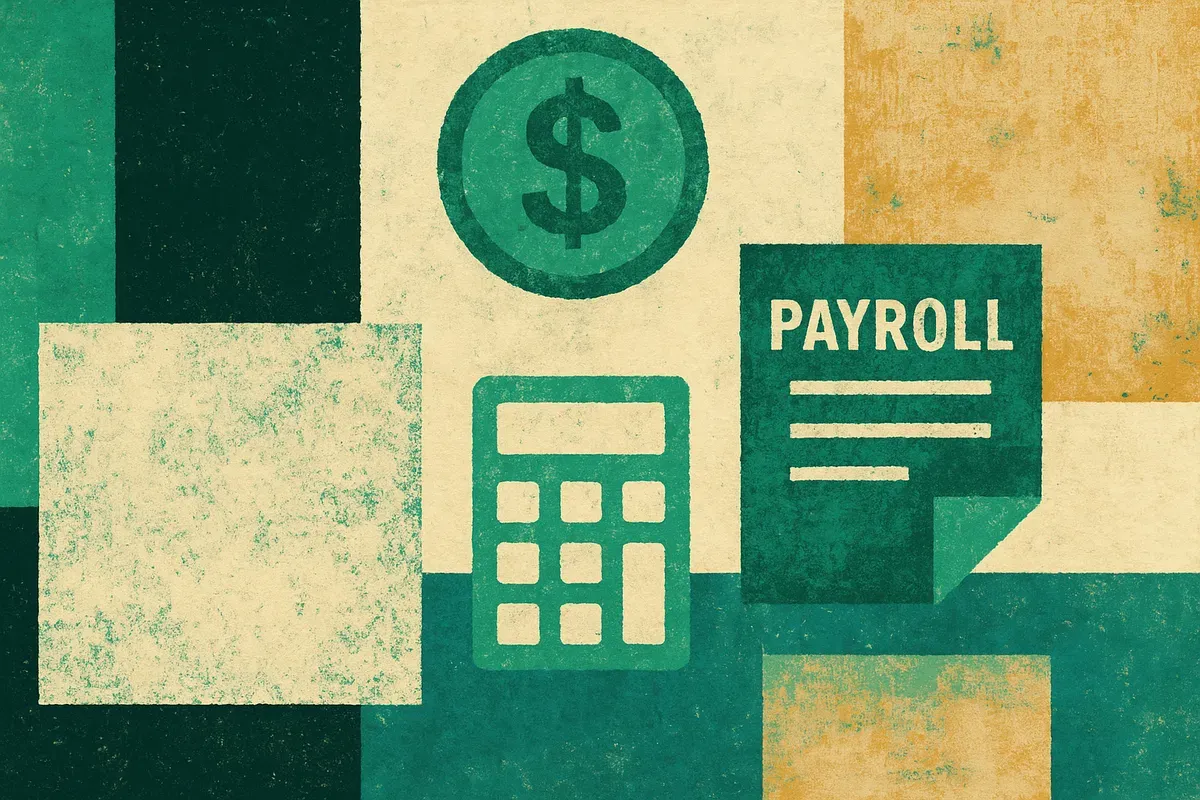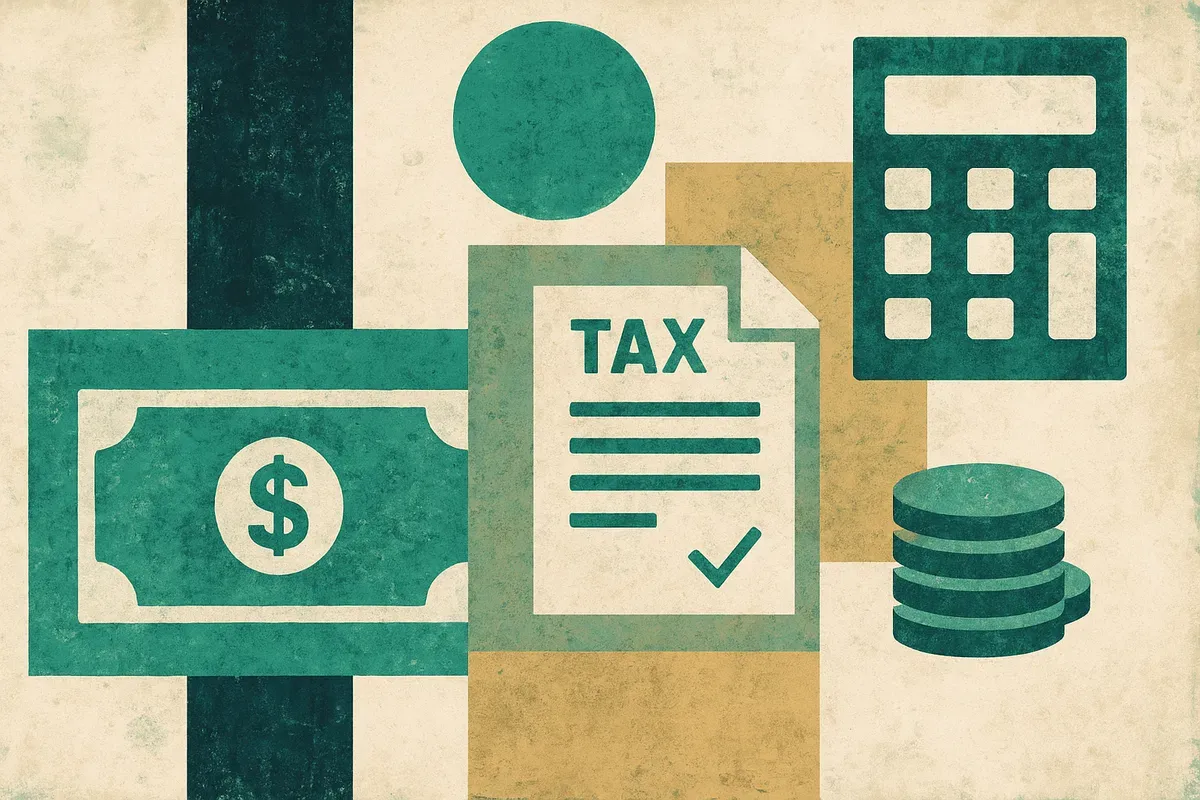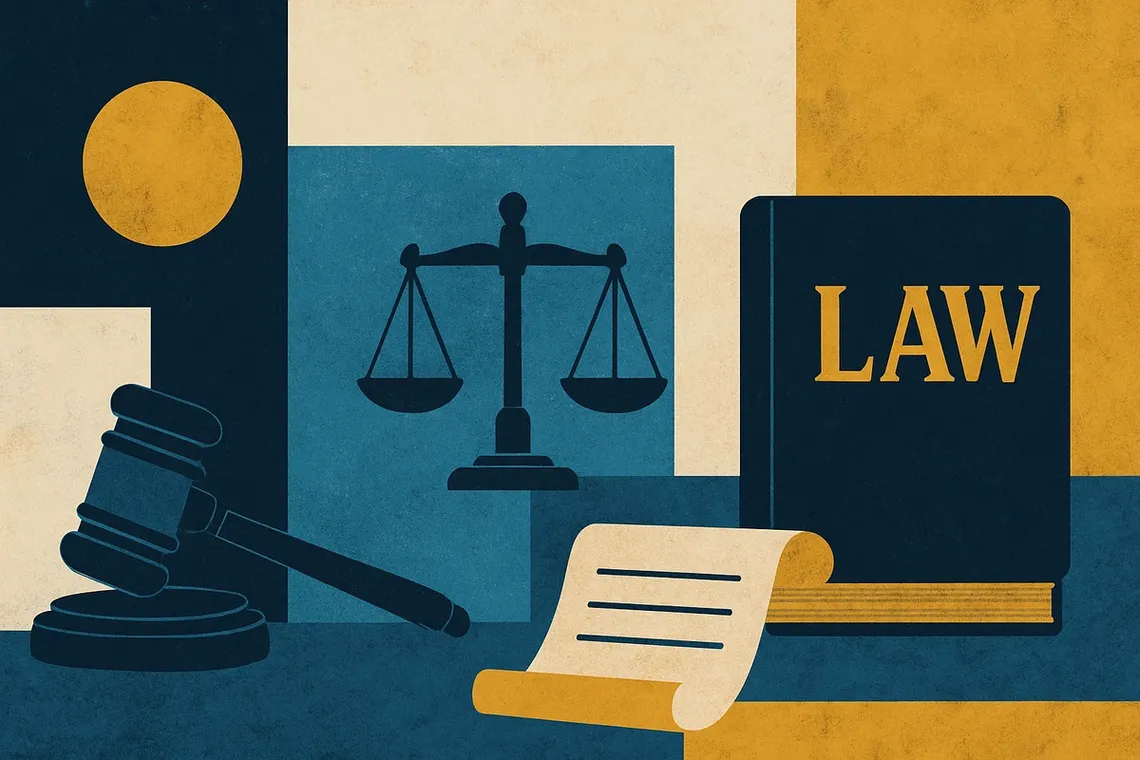Legal Assist
Ministry leaders are invited to make Legal Assist their first stop for risk management guidance for ministry-related legal questions.
Open to All Ministries

Personal Response Service
Ask for help in understanding your ministry’s legal issues clearly.
Law & Ministry Update
The latest news about emerging legislative and judicial developments affecting Christian ministries.

Read the Latest Case Reviews
Find out how religious liberty was affirmed by the Supreme Court. Explore why your church might owe tithes back. Dive into four critical judicial updates that could affect your ministry.

Watch the Podcast
Our in-house attorneys discuss Supreme Court decisions on being “religious enough” and on transgender treatment bans. Plus, get insight on how to prepare for a visit from ICE.
Trending Resources
Practical resources on topics that matter to your team and your mission.
FAQs & More
Get started with Legal Assist by checking the FAQs and articles. Use the filters to narrow your search by audience and topic.
What is the impact of counseling restrictions on faith-based guidance in ministries?
Chiles v. Salazar. If SCOTUS upholds Colorado’s ban, organizations that offer counseling services could face limitations when addressing sensitive topics like gender identity and sexuality.

How could ministries be required to fund employee reproductive health options?
Cedar Park Assembly of God v. Kreidler. A church in Washington finds itself at the center of a legal battle that could have nationwide implications for Christian ministries.

How would your ministry be required to hire employees with conflicting values?
CompassCare v. Hochul. This case strikes at the heart of a ministry’s ability to uphold its mission.

Q. What rules apply in hiring youth to work in our ministry?
A. Ministries hiring teens should follow federal labor laws, avoid hazardous duties, follow minimum wage requirements, and maintain work records.

How would an abuse claim from 50 years ago impact your ministry financially?
Roman Catholic Archbishop of Washington v. John Doe, et al. A new law in Maryland eliminates time limits for filing child abuse lawsuits.

Law & Ministry Update: podcast episode 1 - 07/2025
Join our in-house attorneys as they discuss the U.S. Supreme Court decisions on being “religious enough” and transgender treatment bans. Get insight on preparing for a visit from ICE.

How would your ministry prepare for an immigration raid?
This 2025 federal policy change permits ICE and CBP agents to conduct enforcement actions in places of worship, schools, and other previously protected areas.

Q. What do we need to know about donor-directed donations?
A. To be tax-deductible for the donor, gifts generally must be made to the ministry or a specific ministry program, rather than an individual.

Q. What documents should we keep, and for how long?
A. Ministries should have a record retention policy regarding what to keep and for how long.

Q. Do we need permission to use a person’s image or likeness?
A. If the photo was taken at a public event, and not of a guest speaker or well-known person, permission is not necessarily needed.

Q. As a church board member, what issues should I be aware of?
A. Every church board member should be prepared to answer 10 questions...

Q. Is our ministry required to display labor law posters?
A. In general, ministries with paid employees are required to post labor law posters.

Q. What potential tax ramifications arise for leasing parking lots?
Leasing church parking lots may trigger UBIT and risk tax-exempt status if not managed properly.

Q. What type of warning signs should we have?
A. Warning signs are needed when dangerous conditions on ministry property can create liability in the unfortunate event of an injury.

Q. What should ministries be aware of before recording conversations?
A. Ministry leaders should be very aware of the legal restrictions and exceptions that apply to recording conversations.

Q. Does the Fair Labor Standards Act apply to our ministry?
A. Your ministry is subject to the FLSA if it qualifies as a covered enterprise or has individually covered employees.

Q. What should ministries know before doing a service project?
A. Ministry leaders should be aware of the risks presented by a service project and how to effectively manage those risks.

Q. Why do we need an activity participation agreement?
A. An activity participation agreement ensures that participants understand the risks associated with a particular activity and they accept those risks.

Q. How do we protect our ministry from liability related to activities and youth events?
A. While there’s no way to completely eliminate risk, your ministry can help protect itself from liability with a well-drafted activity participation agreement.

Q. How can ministries limit liability from sudden medical emergencies?
A. Ministries can limit liability by having a trained and fully-equipped medical response team.

Q. How do we identify an independent contractor for tax purposes?
A. The IRS says ministries should evaluate three categories when determining if a worker is an independent contractor or an employee: behavioral, financial, and type of relationship.

Q. Should registered sex offenders be allowed at church?
A. Proceed carefully if a registered sex offender asks to attend church. Your primary goal is the protection of all members, especially children.

Q. How should we respond to and document injuries that occur during activities?
A. It is important to have an injury policy and reporting procedure in place.

Q. Do concealed carry laws apply to our Christian school?
A. Look into local gun laws before hiring armed security officers to protect your school.

Q. Are ministries allowed to remove disruptive people?
A. Churches are private property owners, so they can restrict access to their property.

Q. What should an online privacy policy include?
A. An online privacy policy should identify the type of info your ministry collects, how it’s collected and why, security measures used, and your cookies policy.

Q. What should our ministry know about bylaws?
A. Well-drafted bylaws help ministries manage risk, define authority, and describe your beliefs.

Q. Should indemnification provisions be included in bylaws?
A. Well-drafted bylaws help ministries protect leaders by including indemnification provisions.

Court Backs State Authority in Youth Transition Case
SCOTUS upheld TN SB1, banning gender-transition treatments for minors. The law stays in full effect and sets a precedent for similar legislation across the U.S.

How could a megachurch’s bylaws fight affect your ministry?
Jeremiah Counsel Corporation v. Young, et al. A major legal dispute raises big questions about how churches are run—and what happens when members disagree with leadership decisions.

How far does liability extend when ministry volunteers take a spill?
Calvary Temple Church of Evansville, Inc. v. Kirsch. An Indiana Supreme Court ruling says yes…at least in Indiana. The implications of this case could reach far beyond state lines.

Can the government force ministries to speak against their beliefs about gender?
Defending Education, et al. v. Sullivan, et al. A new Colorado law may require ministries to use individuals’ chosen names and preferred pronouns in public-facing services.

Could a ministry be forced to refund a tithe?
Huntsman v. Corporation of the President of The Church of Jesus Christ of Latter-day Saints: Could a judge decide whether your financial practices align with your public promises? This case confronts the premise that transparency isn’t just a virtue—it may now be a legal necessity.

Court Rules Your Ministry is “Religious Enough”
SCOTUS delivered a win for faith-based organizations, ruling government cannot decide what makes a ministry “religious enough” to qualify for legal protections.

Could ministries be sued for apparently “non-religious” job decisions?
Markel v. Union of Orthodox Jewish Congregations of America, et al. In a major decision, the U.S. Court of Appeals for the Ninth Circuit ruled no—and reaffirmed a powerful legal shield for ministries.

Q. How can we guard against liability related to church discipline?
A: Create a discipline policy to which leaders, members, and attendees agree to adhere.

Q. How do we reduce liability associated with youth texting/sexting?
A. Ministries should caution staff, volunteers, and members against texting/sexting and should create a written policy on the subject.

Retraction of Immigration Sanctuary Policies
The recent rescission of federal directives designating churches and schools as safe sanctuaries for undocumented immigrants could have significant implications for faith communities across the United States.

Federal Court Strikes Down Minimum Salary Exemption Rule
On November 15, 2024, a federal court invalidated the Department of Labor's rule that earlier this year aimed to increase the minimum salary threshold for overtime exemptions under the Fair Standards Labor Act.

Q. Any legal concerns with ministries opening a healthcare clinic?
A. Legal issues are a consideration when administering medical care as part of your ministry. Here are some things you can do to help minimize your risk of legal consequences.

Q. Should ministries engage in peer-to-peer business transactions?
A. Using services like Uber®, Turo®, and Airbnb® to make money seem appealing. Think about potential liability and if there’s adequate insurance coverage.

New Legal Threat to Ministries with Websites
Here’s the scenario: Plaintiffs’ attorneys are exploiting the California Invasion of Privacy Act (CIPA), originally drafted in the 1960s to address wiretapping.

Q. What risks should we know about owning or leasing solar panels?
A. Some insurance, legal, and tax issues can arise when ministries own or lease solar panels. Here are eight to explore before using this form of alternative energy.

Q. Should our ministry incorporate?
A. In today’s legal climate, objections to incorporating a church based on submission to the authority of the state are obsolete.

Q. What is parish nursing?
A. A practice that focuses on a broad range of organized wellness, disease prevention, and health promotion programs and services.

Q. How do we develop or update an effective worker screening policy?
A. You should work with an attorney to establish effective screening procedures.

Q. How should our ministry address serious allergies?
A. Address serious allergies by preparing your staff and volunteers to handle allergic reactions.

Q. Could we be responsible for injury or expense related to bedbugs?
A. If a guest comes into contact with bedbugs, bats, or other pests at your facility your ministry could be liable for injury or expense that’s incurred.

Q. Can employees sue for decisions based on religious beliefs?
A. Employees can sue their employer for employment-related decisions. See how Supreme Court cases come into to play when it comes to ministries.

Q. Does a ministry need a permit to serve or sell food?
A. Local law determines if your ministry needs a permit or a temporary license to serve or sell food.

Q. What issues may arise when merging with another ministry?
A. Church mergers require legal planning for leadership, assets, staff, and bylaws to ensure a smooth and unified transition.

Q. Do we have to report all injuries, even insignificant ones?
A. Prompt reporting of all work-related injuries is a risk management best practice for any ministry.

Q. What should ministries know about mandatory reporting?
A. Ministry leaders should be familiar with mandatory reporting laws in their state and educate employees and volunteers on requirements they fulfill.

Q. What if a background check turns up a criminal record?
A. Discovery of a criminal record is the beginning of an inquiry, not the end.

Q. Does a work comp policy cover independent contractors?
A. Generally speaking, a truly “independent” contractor will not be covered by your ministry’s workers’ compensation policy.

Q. Are clergy members required to sign marriage licenses?
A. Clergy members generally have the right to decline to officiate any wedding that is inconsistent with their beliefs.

Q. Is our ministry automatically tax-exempt?
A. Churches are automatically tax-exempt, but other nonprofits must file Form 1023 for 501(c)(3) status.

Q. Can our ministry use electronic signatures to sign documents?
A. Generally, yes, e-signatures have the same function as their printed counterparts—they are an indication of a signer’s intent to agree to the terms of a document.

Q. How should our ministry respond to a subpoena?
A. It’s usually best to respond as requested. However, at certain times a ministry may want to fight a subpoena.

Q. What if a child in our care is not immunized?
A. A childcare policy for standard immunizations and vaccinations should align with state laws and protect all children in your ministry’s care. Sample waivers included.

Q. What should ministry leaders know about contracts?
A. Contracts should be reviewed for legal terms, risks, rights and responsibilities before signing to protect the ministry.

Q. What political activity is prohibited by tax exempt status?
A. Ministries should avoid political campaigning to maintain 501(c)(3) tax-exempt status.

Q. How do we respond to requests from political groups or candidates?
A. Churches should be careful not to jeopardize their 501(c)(3) tax-exempt status through political activity.

Q: What liability insurance limits do ministries need?
A. Liability insurance protects ministries if someone sustains injury or loss in connection with ministry activities.

Q. Does our ministry need an Employer Identification Number?
A. Yes. An EIN is an organization’s federal identification number, much like an individual’s Social Security number.

Q. How do good Samaritan laws apply to our ministry?
A. Good Samaritan laws apply to ministries in some states. These state statutes are intended to protect individuals from legal liability for providing medical assistance in emergency situations.

Q: Are ministries subject to HIPAA?
A: Many ministries are not subject to HIPAA, but some are. Even if a ministry is not required to follow HIPAA, understanding the privacy laws is important.

Q. Can we use images from the web in ministry publications?
A. Keep in mind that copyright laws protect most creative works.

No results matching your filters
Try adjusting your filters or resetting them.
Attorney Referral Service
Free referral information for attorneys in your area who are members of the Christian Legal Society, the nation's largest Christian legal association.

Brotherhood Mutual is pleased to provide Legal AssistSM as a complimentary resource. Services through Legal Assist aim to provide general legal information to our current and prospective policyholders. Information provided is intended to be helpful. It does not constitute legal advice and should not be used as a substitute for advice from a licensed attorney in your area. No attorney/client relationship is established through this process. No legal advice will be provided. We strongly recommend regular consultations with a local attorney as part of your risk management program.



